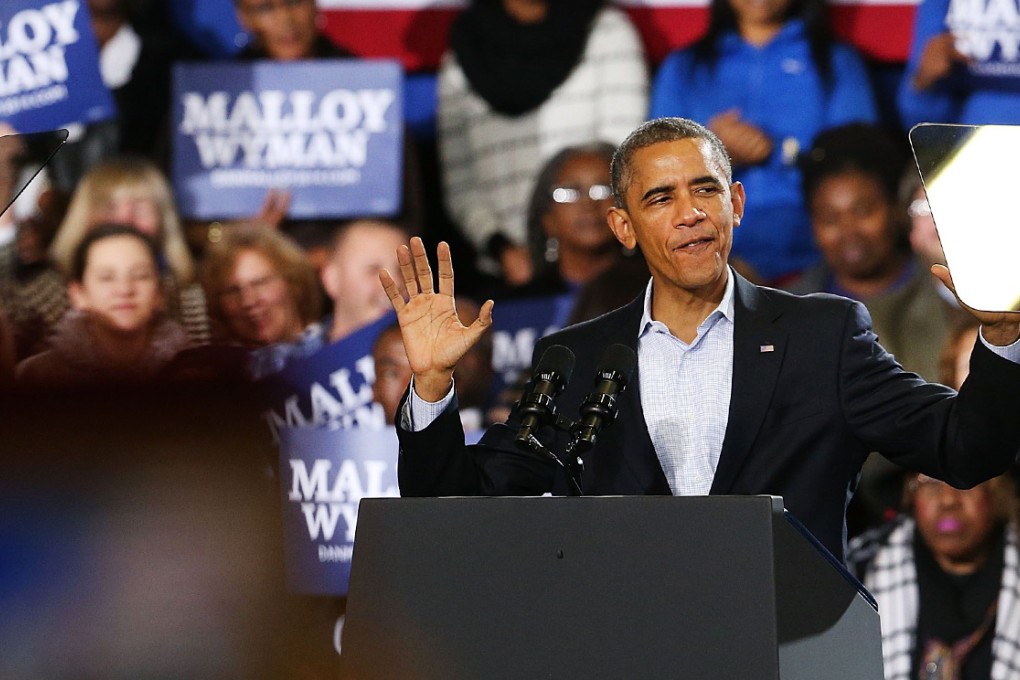Republican gains in mid-term polls could aid Obama's Asian trade deal
Major Republican gains in today's polls could aid Obama in getting fast-track authority for his struggling Trans-Pacific Partnership

Big Republican gains in today's mid-term elections would be a blow to much of US President Barack Obama's agenda, but one item on his to-do list might get a fresh chance to move forward: trade. That could breathe life into Asia-Pacific trade talks essential to his efforts to deepen engagement in the region.

Fast-track legislation was introduced in January but Senate Democratic leader Harry Reid would not allow a vote. Many Democrats fear that opening markets to countries with lower wages will cost American jobs. Republicans tend to be more supportive, seeing more trade as benefiting the economy.
With Republicans favoured to take control of the Senate and expand their House majority in today's elections, trade could become a rare point of agreement between a Republican Congress and the White House.
Yet obstacles would remain.
Many Republicans would hesitate to see a Democratic president make progress on his agenda. Among Democrats, there is widespread opposition in the House to the Asian pact. Opposition is less strong in the Senate, but it only takes a few lawmakers to use procedural tactics and try to block the deal.